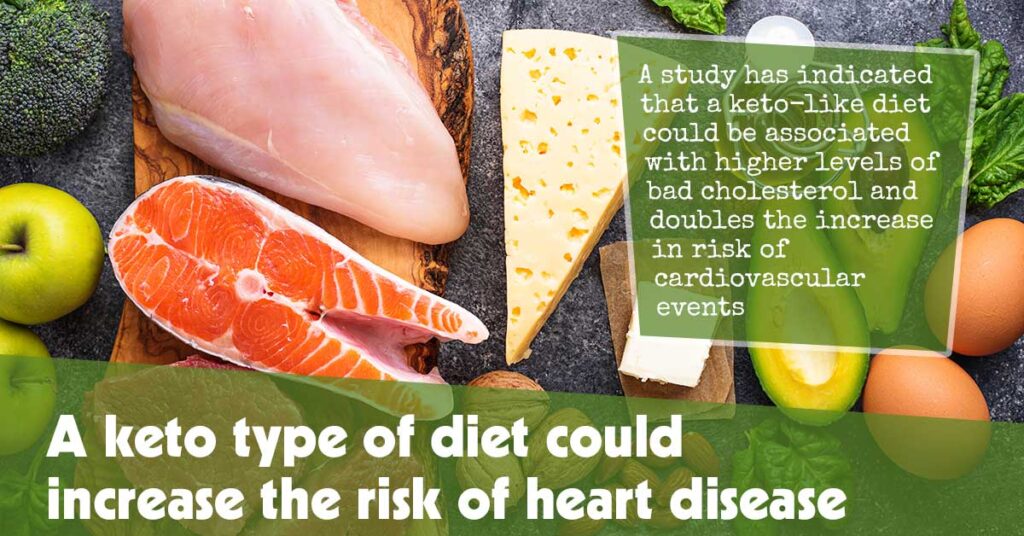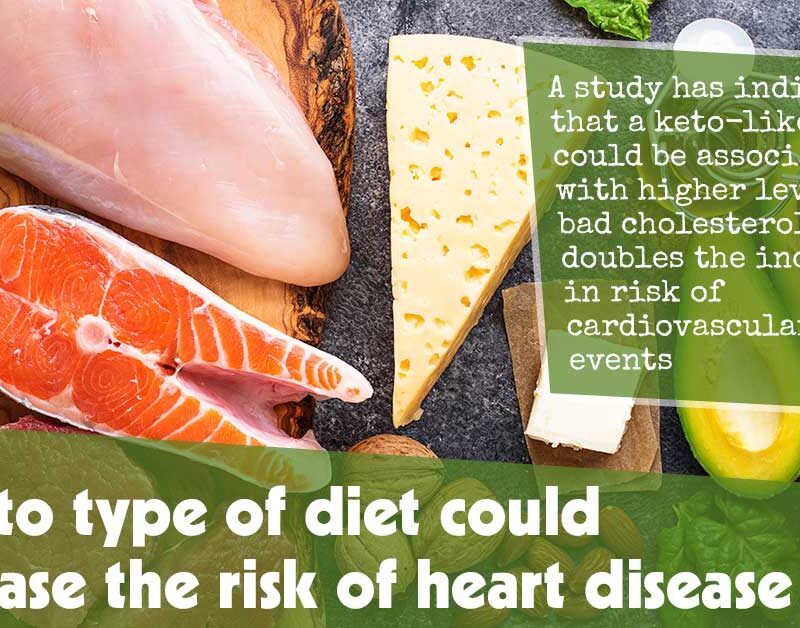Keto diets involving very limited carbs and increased amounts of fat have become increasingly popular, yet a study conducted recently suggests they could increase levels of bad cholesterol while increasing cardiovascular event risks such as blocked arteries requiring stenting, angina attacks, strokes, and heart attacks by two fold.
A recent study conducted by University College London demonstrated that regular consumption of a diet consisting largely of proteins and fats — typically low-carbohydrate/high-fat — led to elevated LDL cholesterol levels and thus an increased heart disease risk.
Carbs are your body’s main source of fuel for daily life activities, providing energy through carbohydrates. Low-carbohydrate, high-fat diets such as the keto diet restrict carbohydrates intake by restricting baked goods, bread, rice and other grains, pasta dishes such as pizza or chips as well as any high carb veggies or fruit products such as apples.
Ketogenic diet advocates typically suggest restricting carbohydrates to 10% of total calorie consumption daily, protein to 20%-30% and fat at 60-81% as sources of energy for optimal performance.
Studies have demonstrated that following a low-carbohydrate, high-fat diet can result in elevated LDL cholesterol levels for some individuals. While increased LDL is recognized as an established heart disease risk factor due to cholesterol buildup in coronary arteries known as atherosclerosis, no substantial research has been conducted regarding its effects on stroke or heart disease risk from such diets.
Researchers for this study defined a low-carbohydrate, high-fat diet as comprising more than 45% of daily total calories from fat sources while no more than 25% comes from carbohydrates – making this “keto-like.” A standard diet consisted of people not meeting these conditions with more balanced eating habits.
Data were extracted from the UK Biobank, an expansive health information database featuring more than half a million UK-residing individuals followed for at least 10 years. 70,684 participants completed 24-hour self-reported diet questionnaires when joining, as well as having their blood drawn for cholesterol testing.
At the heart of this study was an effort to identify individuals whose questionnaire responses revealed a diet fitting the definition of low-carbohydrate, high-fat eating. These individuals were then compared against 1,220 individuals reporting consumption of standard diets.
73% of those in each group were female with an average age of 54 years. On average, those on a low-carbohydrate, high-fat diet had a body mass index (BMI) rating of 27.7 while those following a standard diet experienced BMI levels between 26.7 to 28.3. BMI 25-30 falls within the overweight range.
Comparative to those on a standard diet, those on a low-carbohydrate, high-fat diet had significantly increased LDL cholesterol levels as well as protein components known as apoB that sit on LDL particles.
Studies have demonstrated that an elevated apoB can serve as a more accurate predictor than increased LDL cholesterol for cardiovascular disease risk. After 11.8 years of follow up and after accounting for other risk factors like smoking, obesity, high blood pressure, and diabetes; individuals following a diet high in carbohydrates but low in fat had more than twice the risk of experiencing major cardiovascular events like heart attacks, peripheral arterial disease, strokes or blocked arteries that required opening with stenting procedures.
Overall, 9.8% of those following a low-carbohydrate, high-fat diet experienced a new cardiac event compared to 4.3% on a standard diet – this represents twice the risk for those on low-carbohydrate, high-fat diets.
Studies revealed that among individuals on low-carbohydrate, high-fat diets, those with the highest LDL cholesterol levels experienced the greatest cardiovascular event risk. These results highlight that those considering adopting such diets must remember that doing so could increase LDL cholesterol levels significantly.
Before beginning any dietary pattern, individuals should seek the advice of healthcare professionals. While on this diet it’s advised that individuals monitor cholesterol levels while also keeping in mind other risk factors for heart disease or stroke risk factors like smoking, physical inactivity, hypertension and diabetes.
The results of the study reveal that not every individual reacts similarly to a low-carbohydrate, high-fat diet. Averagely speaking, cholesterol levels tend to increase on such diets but depending on individual circumstances or other underlying factors they can either remain the same or even decrease.
One limitation of the study was that individuals only provided their diet information once; this should be taken into account when interpreting its results. Self-reporting food consumption can also be inaccurate; although, the questionnaire was thoroughly checked.
Due to being an observational study, only an indirect relationship could be shown between diet and an elevated major cardiac event risk and an increased major cardiac event risk; not a causal one.







